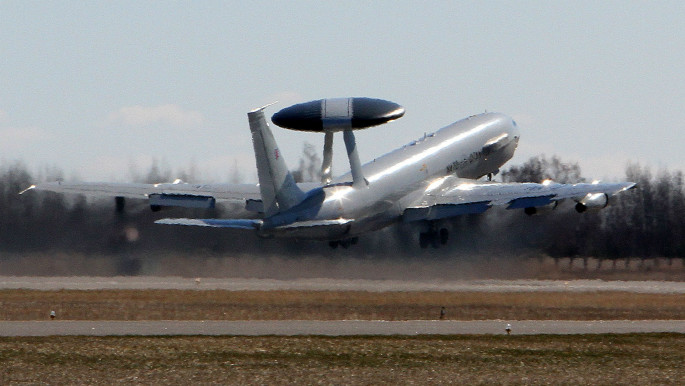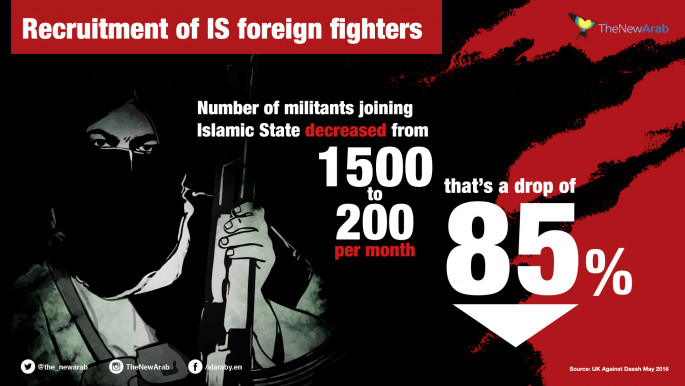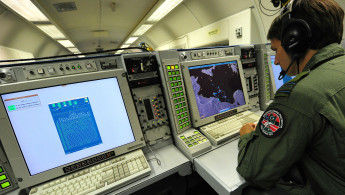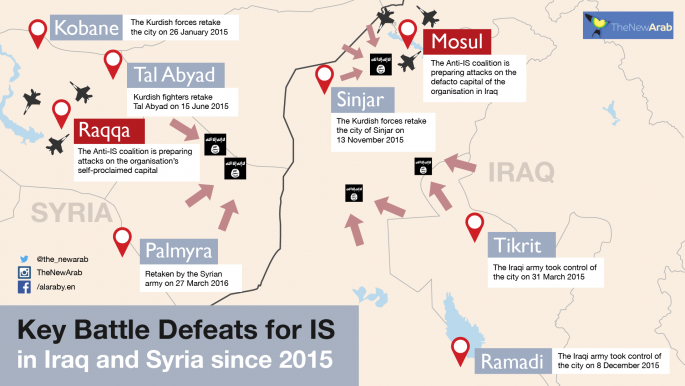NATO spy planes enlisted to boost fight against IS
Jens Stoltenberg said the organisation could deploy sophisticated surveillance aircraft to the region, upon which it could relay intelligence to the international anti-IS coalition from "NATO territory and international airspace".
"On Iraq, we discussed the request by Prime Minister [Haider] al-Abadi to expand our training and capacity-building into Iraq itself," Stoltenberg told a press conference at NATO's Brussels headquarters.
"We agreed to send an assessment team to Iraq as soon as possible to explore the possibility of NATO training inside Iraq, and how to ensure that any such efforts would be complementary to what the global coalition is doing."
NATO's AWACS aircraft, which carry powerful radar technology enabling them to monitor large swathes of territory, may soon join the fight against the militant group, Stoltenberg said.
The organisation previously agreed "in principle" to a US request to deploy AWACS, noting it would not be directly involved in monitoring militants, but would work as cover for coalition aircraft occupied with other tasks.
 |
The United States stands ready to provide humanitarian, economic and security support to the new Libyan government on their request - US Secretary of State John Kerry |
 |
However, several European NATO members have shown reluctance over the alliance becoming too involved, with German Foreign Minister Frank-Walter Steinmeier saying "explicit and formal involvement of NATO in the fight against IS is certainly not the answer".
'Terror watchlist'
The comments follow a US decision to add the Islamic State group's Libya, Yemen and Saudi Arabia branches to its global terrorism blacklist on Thursday.
 |
|
| The huge radar dome on AWACS aircraft allows surveillance of vast areas [Getty] |
The three branches emerged after IS leader Abu Bakr al-Baghdadi announced the formation of his self-described "caliphate", and accepted oaths of allegiance from militants across the region and beyond.
The militant group's Libyan franchise had been rapidly expanding its territory around the city of Sirte, and was believed to be the biggest IS threat to the US and Europe after its main Syrian and Iraqi branch.
A 25-member group, including the United States, Italy and other Libyan allies, agreed on Monday to arm the war-torn country's newly established unity government to fight the Islamic State group threat.
"The United States stands ready to provide humanitarian, economic and security support to the new Libyan government on their request," US Secretary of State John Kerry said.
On Europe's doorstep
On Thursday, media reports published comments from France's spy chief, who warned the Islamic State group was "clearly" targeting the country.
Militants could imminently launch a "terrorist campaign" of bombings in public places, DGSI agency Chief Patrick Calvar said at a meeting on national defence, adding France was "the country most threatened" by IS as well as Al-Qaeda.
"We know that Daesh [the Arabic acronym for IS] is planning new attacks - using fighters in the area, taking routes which facilitate access to our territory - and that France is clearly targeted," Calvar said.
"We risk being confronted with a new form of attack: a terrorist campaign characterised by leaving explosive devices in places where big crowds gather, multiplying this type of action to create a climate of panic," he said.
'A shrinking Caliphate'
While NATO has limited its involvement to training Iraqi officers in Jordan, a US-led coalition is leading the fight against IS in the region, providing intelligence, man-power and training.
The offensive, lauched in August 2014, has forced the Islamic State group to suffer a recent series of military setbacks, losing territory in both Iraq and Syria, as pro-government forces continued to power through territory on the ground.
Earlier this week, a Pentagon spokesman said IS had so far lost almost half of land it once controlled in Iraq.
Militants within the Iraqi borders lost control of nearly half their terrain, reaffirming earlier estimates suggesting that 40 percent had been recaptured by US-backed Iraqi forces.
"The number right now in Iraq is about 45 percent of the territory they once held has been recovered," said Pentagon spokesman Peter Cook.
Across the border in Syria, earlier estimates have nearly doubled with the current number now standing "anywhere between 16 to 20 percent".
Most recently, government fighters liberated the strategic Rutba town as part of a a large-scale military operation to recapture parts of the Anbar province.





